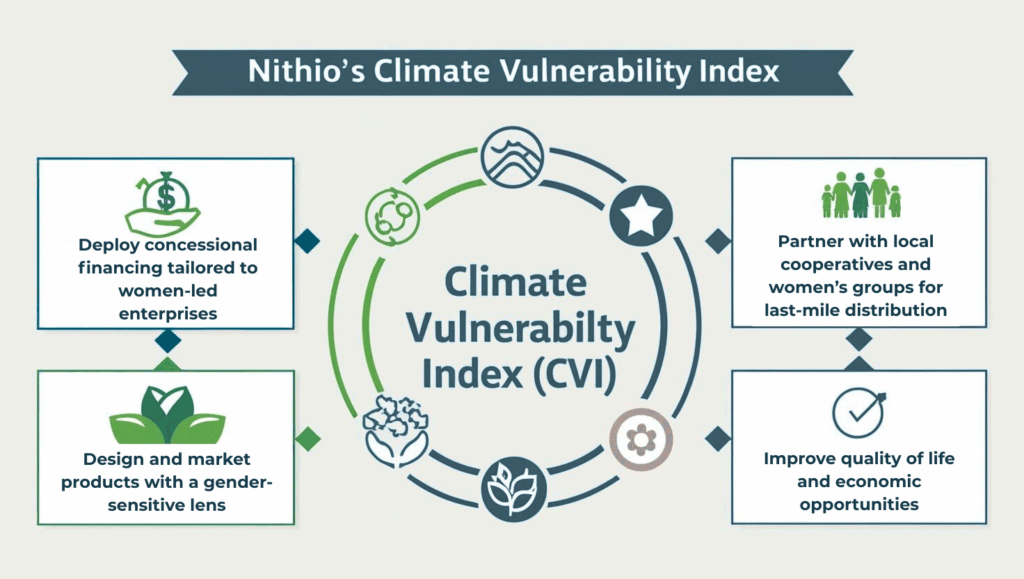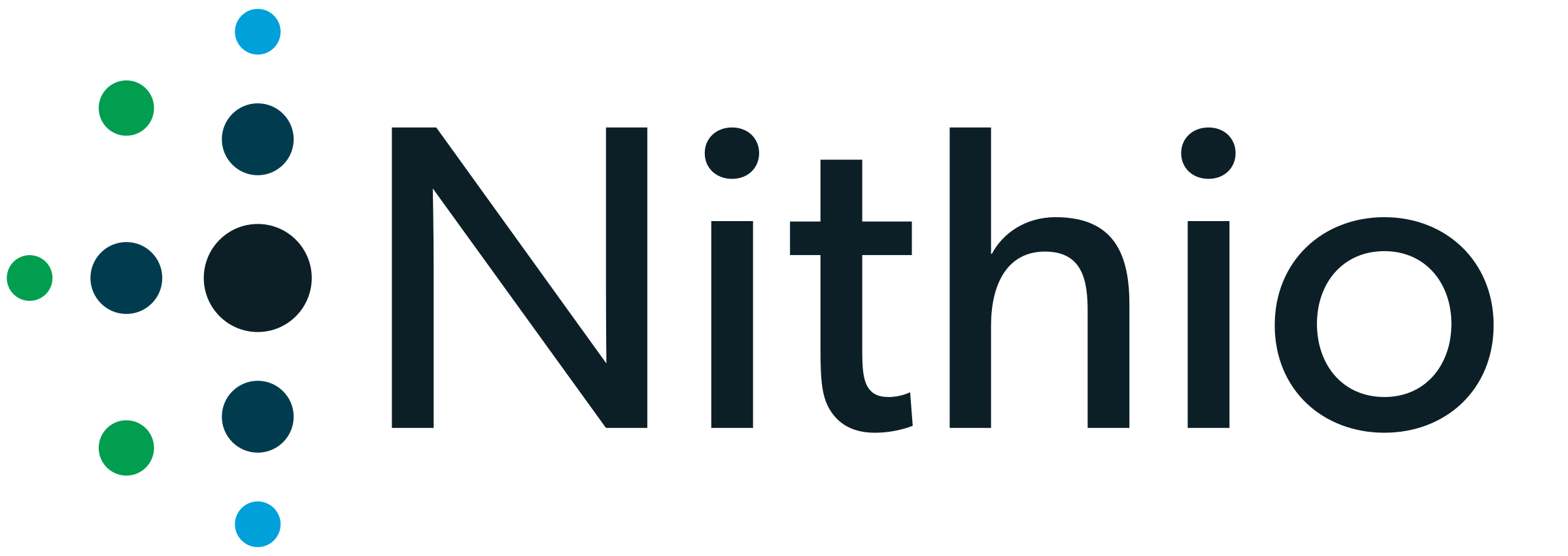As climate shocks intensify across Africa, there’s growing urgency to direct capital to the communities most at risk. Women in particular, face the greatest burden, bearing the disproportionate impact of both environmental and economic instability. This emphasizes the importance of using accurate, context-specific data that reflects risk exposure and local realities for investments to be both impactful and inclusive.
For example, women smallholder farmers constitute an average of 70 percent of the Kenyan agricultural workforce doing the bulk of the work from produce to market, as their ventures contribute significantly to productivity and GDP. Yet, they reap little benefits from clean energy solutions for productive use. Their lower incomes and the long hours spent collecting firewood and managing household energy needs leave them with little time and resources to invest in sustainable alternatives.
This is where Nithio comes in. Nithio’s Climate Vulnerability Index (CVI) and Risk Analytics Engine are geospatial tools designed to pinpoint climate risk and investment needs in vulnerable regions. By evaluating weather variables such as temperature, rainfall, and heat alongside socioeconomic factors, like population access to finance and poverty levels, the CVI identifies areas most in need of climate-resilient solutions. This helps investors, governments, and energy providers to target climate-vulnerable regions and tailor adequate financing solutions where they are needed most.
Case Study: Drought Impact on Women in Northern Kenya
In Northern Kenya, home to over 4.5 million people, climate change-driven droughts have severely impacted agricultural productivity, depleting pastures, causing widespread livestock losses, and reducing milk production.
This significantly impacts women, with consequences such as increased rates of child marriage, female gential multilation (FGM), and school dropout, with 30% of women having no formal education compared to 13% of men. In time of crisis, families may arrange child marriage to secure income and survive drought. At the same time, women face increased workloads, as they travel long distances to secure food, water, and firewood, which limits their time for income-generating activities such as small-scale farming.
As livestock grazing fields become scarce, trends show that men who work primarily as shepherds across the region move far away from home in search of better opportunities, leaving women in charge of the households. Additionally, the stress from drought conditions can negatively affect women’s health, increasing the risk of malnutrition and related illnesses.
Advancing Gender Inclusive Climate Adaptation Solutions
In addition to these challenges, women remain left out when it comes to accessing climate-resilient solutions. Providers of renewable energy systems , including Solar Home Systems and Productive Use Appliances, which are key for improving agricultural productivity, are extending their reach into these vulnerable regions such as Northern Kenya. However, according to the World Bank, these products represent only 5% of total energy product sales in such areas. Structural barriers, such as affordability constraints, lack of financing options and insufficient outreach to women continue to limit adoption.
Yet, the data shows women are reliable borrowers. In Nithio’s portfolio, women make up 40% of solar product users, compared to 54% for men, and have better repayment rates than men, 90% compared to 84% for men, with fewer repossessions and defaults. Still, in 127 countries, there are no legal protections against gender-based financial discrimination, making it harder for women to access credit even when the data proves their reliability.
Driving meaningful, gender-responsive climate resilience requires targeted financing strategies grounded in actionable data. Tools like Nithio’s Climate Vulnerability Index (CVI) help decision-makers with insights to:
- Deploy concessional financing tailored to women-led enterprises
- Partner with local cooperatives and women’s groups for last-mile distribution
- Design and market products with a gender-sensitive lens

Delivering Smart Financing with Nithio
Closing the gender gap in accessing climate-adaptation technologies presents a pathway to scaling impact in regions where climate risks intersect with longstanding inequalities. Across Africa, women are already leading the work of adaptation, but they need the tools and financing to succeed.
The future of climate finance demands that climate solutions must be designed with intentionality and real time insights. Nithio provides data-driven tools to equip investors and funders with the precision to direct capital where it can deliver measurable social, environmental, and financial returns.
Trusted by leading institutions, Nithio is the partner for investments in smarter and inclusive finance.
Get in touch [here] or contact the Nithio team directly at [email protected].

Recent Comments